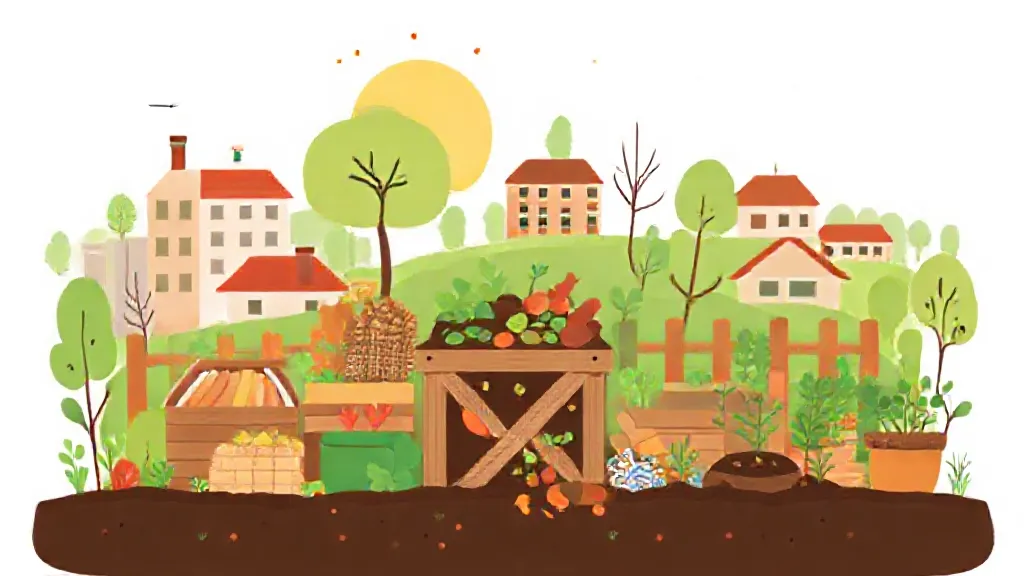Composting is a natural process that transforms organic waste into valuable soil amendments, reducing the amount of waste sent to landfills. Understanding where composting can have the most significant impact on waste reduction involves examining various factors such as the types of waste generated, local waste management practices, and community engagement. This article delves into the effectiveness of composting in different contexts and regions, providing a comprehensive overview of its benefits and challenges.
The Role of Organic Waste in Landfills
Organic waste, which includes food scraps, yard debris, and other biodegradable materials, constitutes a substantial portion of the waste generated in urban areas. According to the Environmental Protection Agency (EPA), food waste alone accounts for approximately 22% of municipal solid waste. When organic materials decompose in landfills, they produce methane, a potent greenhouse gas that contributes to climate change.
By diverting organic waste from landfills through composting, communities can significantly reduce their overall waste footprint and mitigate environmental harm.
Urban vs. Rural Composting Initiatives
The effectiveness of composting varies significantly between urban and rural settings.
Urban areas often face challenges such as limited space and higher population density, which can complicate composting efforts. However, cities like San Francisco and Portland have implemented successful composting programs that have led to substantial waste diversion rates. In contrast, rural communities, with more available land, may find it easier to establish composting facilities but may struggle with lower participation rates.
Understanding these regional differences is crucial for tailoring composting initiatives to maximize their impact.
Community Engagement and Education
One of the most critical factors in the success of composting programs is community engagement. Education initiatives that inform residents about the benefits of composting and how to participate can lead to higher adoption rates.
Programs that provide compost bins or offer workshops on composting techniques can empower individuals to take action. For instance, community gardens often serve as hubs for composting education, demonstrating practical applications and fostering a culture of sustainability.
The Economic Benefits of Composting
Composting not only reduces waste but also offers economic benefits.
By decreasing the volume of waste sent to landfills, municipalities can save on disposal costs. Additionally, composting creates jobs in areas such as collection, processing, and distribution of compost products. The composting industry has seen growth in recent years, with businesses emerging to provide composting services and products.
This economic aspect is crucial for garnering support from local governments and businesses alike.
Barriers to Composting Adoption
Despite its benefits, several barriers hinder widespread composting adoption. These include lack of space for composting, insufficient knowledge about composting methods, and misconceptions about the process.
Additionally, some individuals may be deterred by the perceived odor or maintenance requirements associated with composting. Addressing these barriers through targeted education and resource provision is vital for increasing participation rates and maximizing waste reduction.
Innovative Composting Solutions
Recent innovations in composting technology have made it easier for individuals and communities to compost effectively.
For example, in-vessel composting systems allow for odor-free composting in urban settings, making it more accessible for residents with limited outdoor space. Furthermore, the rise of composting apps and online platforms has facilitated community connections, enabling residents to share resources and knowledge. These innovations can enhance the effectiveness of composting efforts and encourage greater participation.
The Global Perspective on Composting
Globally, composting practices vary widely based on cultural attitudes towards waste and sustainability. Countries like Sweden and Germany have robust composting systems integrated into their waste management strategies, resulting in high diversion rates. In contrast, developing nations may face challenges such as limited infrastructure and resources.
However, grassroots movements and international collaborations are emerging to promote composting as a sustainable waste management solution worldwide.
Future Directions for Composting Initiatives
Looking ahead, the future of composting initiatives lies in continued innovation, community engagement, and policy support. Governments can play a crucial role by implementing policies that promote composting, such as incentives for businesses that adopt composting practices or funding for community education programs.
As awareness of the environmental impacts of waste grows, composting will likely become an integral part of sustainable waste management strategies, helping to reduce waste and create healthier communities.
